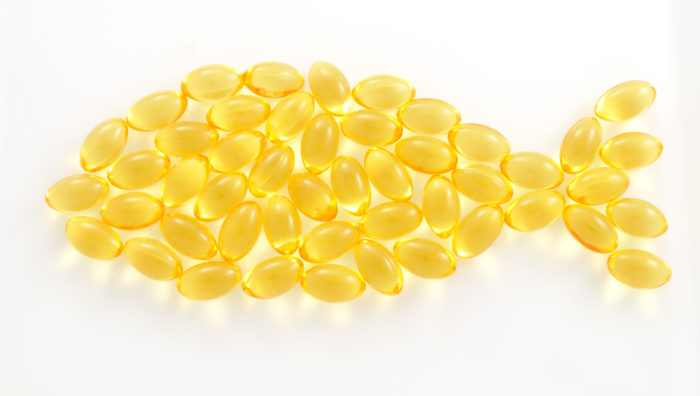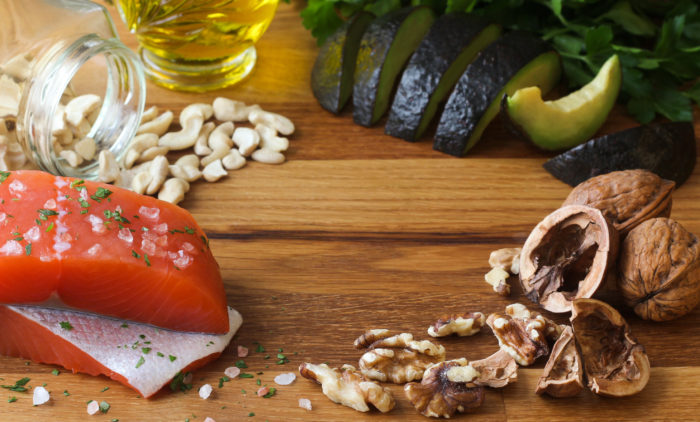Inflammation: is it always bad?
In the functional and alternative medicine world, inflammation is the villain of the story.
Virtually all chronic disease stems from excess inflammation driven by our stress filled modern lifestyles. So it makes sense that alternative practitioners focus on controlling inflammation when treating patients.
With inflammation in the crosshairs, many practitioners prescribe pharmacological doses of anti-inflammatories. This includes supplements like fish oil, turmeric, resveratrol, vitamin C, and other botanicals to eliminate inflammation in the body.
But is complete suppression of the inflammatory response truly health promoting? Read on to learn more!
THE ROLE OF HEALTHY INFLAMMATION
While there may be a time and place for using these compounds as a short-term therapy, the goal is not to eliminate inflammation at all costs. The inflammatory process is a protective process that helps the body maintain homeostasis and balance.
If inflammation can’t be initiated, our bodies can’t mount a response to challenges with pathogens, foreign bodies or injuries to tissues. We need to be able to access an inflammatory response to manage acute stressors. We need it to be able to recognize food as nourishment and not a pathogen to mount an antibody response against.
Inflammation does become a problem if it can’t be turned off.
A loss in the ability to resolve acute inflammation results in white blood cell mediated tissue destruction and chronic inflammation.
This is the root cause of prevalent diseases like arthritis, asthma, periodontal disease, autoimmune conditions, diabetes, cardiovascular disease and even certain cancers.
To maintain a healthy body, both initiation of acute inflammation and its resolution must be efficient.
But ironically, overdosing on anti-inflammatories has the unintended consequence of reducing our body’s ability to turn off inflammation.
CONSEQUENCES OF SUPPRESSED INFLAMMATION
While the alternative world is right in pointing out the health consequences of chronic uncontrolled inflammation, they fail to see the consequences of a suppressed inflammatory response that can result from abusing anti-inflammatory agents.
In an interview with Abel James, Chris Masterjohn discusses how this over-emphasis on anti-inflammatories is simplistic and imperfect. “It shouldn’t be about taking sides…it should always be about balance,” Chris stated.
Masterjohn further explains that instead of trying to go to war with inflammation by mega-dosing, we should focus on training our bodies to properly regulate inflammation.
This means allowing our bodies to self-regulate the production of anti-inflammatory and pro-inflammatory molecules, instead of intervening with high doses of supplements that prevent the natural highs and lows of the inflammatory response. Losing these fluctuations throws the whole system out of balance.
Why are Americans so inflamed?
The inflammation response is incredibly complex. Let’s review the basics of the inflammation response and the key players involved in the process.
The most obvious example of the inflammatory response is the swelling, redness, heat, pain and immobility that we feel when we damage our body, i.e. we cut our finger or scrape our knee. The body orchestrates this impressive response that is required to restore order and function back to the damaged tissue, and to prevent infection of that compromised area.
Platelets from the blood send out clotting proteins to prevent blood loss. Mast cells secrete chemicals to open up blood vessels allowing an increase of blood, platelets and cells to the site of injury. White blood cells rush to the area to kill any invading bacteria at the tissue site. Macrophages release chemicals to recruit the immune response and activate tissue repair.
It’s complex and amazing process that kicks off so we can eventually heal.
While the inflammation from physical injuries is evident, inflammation inside our bodies caused by the foods we eat and our modern lifestyles can be far more elusive and non-specific.
Junk food, poor sleep habits, stress, and other lifestyle behaviors increase the amount of oxidative stress in our cells which stimulates pro-inflammatory processes in the body. Our body works hard to resolve this inflammation, but often times can’t deal with it appropriately, especially when we’re malnourished.
That’s why so many people deal with chronic inflammation: their bodies lack the ability to appropriately respond to the daily oxidative stress their body is subject to.
What is oxidative stress?
Oxidative stress is defined as an imbalance in the production of free radicals and antioxidant defenses. Free radicals are molecules in the body that are very reactive due to a missing electron that makes them unstable. To achieve stability, free radicals steal electrons from neighboring molecules.
This creates unstable neighboring molecules that are then forced to steal electrons from their neighbors. It’s a vicious cycle that can propagate, causing cell damage and unprogrammed cell death.
Free radicals are a normal byproduct of our metabolism. However, pollution, UV light, food, alcohol and smoking also increase the production of free radicals. We have powerful antioxidant defenses to protect us from becoming over-burdened by the destructive nature of free radicals, but in our modern world these defenses can become overwhelmed.
The Role of Antioxidants
Antioxidants come to the rescue by donating electrons to free radicals, stabilizing them and bringing their path of cellular destruction to an end. Antioxidants can also repair cellular damage incurred by oxidative stress and stimulate programmed cell death if damage is too great to repair.
These antioxidants can be from endogenous sources (made inside our bodies) like glutathione or from dietary sources like vitamin E, vitamin C and other plant compounds.
Inflammation is initiated inside the cell when free radicals outnumber antioxidants. Limiting the free radical burden by eating a nutrient-dense whole foods diet that is lower in polyunsaturated fats can help keep excessive, unnecessary inflammation at bay.
HOW DIET AFFECTS INFLAMMATION
Polyunsaturated fats, especially omega 6 fatty acids, found in the cell membrane are especially susceptible to the electron-stealing wrath of free radicals. These fats are prone to oxidation because of the instability of the double bonds in their chemical structure.
With such high intakes of refined seed oils (e.g. corn, soy and peanut oils) in the American diet, it is not surprising that there is a high prevalence of inflammatory diseases like diabetes, autoimmunity and cardiovascular disease in our country.
The composition of your polyunsaturated fat intake can play a key role in your body’s ability to both initiate and resolve an inflammatory response. Linoleic fatty acids (omega 6s) and alpha linolenic fatty acids (omega 3s) are precursors of mediators involved in the inflammatory response.
You have most likely heard that the omega 3s in fish and fish oils are anti-inflammatory. These fatty acids both contain DHA and are used in the body to create DHA. (DHA is a lipid compound essential to resolving the inflammatory response.)
On the other hand, arachidonic acid, the precursor of eicosanoids that promote the initiation of the inflammatory response, is derived from linoleic acids.
Would you like to save this post?
Your email address is 100% safe and will never be sent spam.
Linoleic acid or alpha linolenic acid require the same enzyme to be converted into DHA and arachidonic acid, respectively. So, the high amounts of linoleic acid in the Standard American Diet can cause problems by out-competing alpha linolenic acid for that conversion enzyme.
This leads to a great decrease in the ability to convert ALA into DHA, and a decreased ability to resolve the inflammatory response. When DHA can’t turn off the inflammatory processes in the body, chronic diseases can develop.
But, does that mean we need to consume large amounts of fish oil to prevent chronic disease? (Nope.)

The Trouble with Fish Oil
When anti-inflammatory omega 3 precursors are excessively favored, our body can’t mount normal inflammatory processes. Excessive doses of fish and cod liver oil appear to disturb arachidonic acid metabolism, which affects both the initiation and resolution of inflammation. This leads to symptoms of arachidonic acid deficiency like gastrointestinal issues, itchy skin, and excess menstrual bleeding.
While we don’t want an excess of omega-6 fats in our diet, we also don’t want an excess of omega-3s. Both of these situations impair an appropriate inflammatory response.
Many people mistakenly believe that because fish oil and other anti-inflammatory compounds (like curcumin and resveratrol) are extracted from natural sources that they are safe to take in pharmacological doses.
But chronic use of natural anti-inflammatory agents can have consequences similar to chronic NSAIDs overuse, because they have the same exact mechanism of action.
Both natural anti-inflammatories and NSAIDS are COX enzyme inhibitors. Cyclooxygenase (COX) enzymes are responsible for the formation of prostaglandins, a pro-inflammatory mediator manufactured from arachidonic acid. If COX enzymes are inhibited, prostaglandin synthesis is inhibited as well.
This prevents the initiation of an inflammatory response, which could lead to serious health consequences and immune dysfunction in the future. While this isn’t likely to happen with a normal intake of fatty fish, taking gram-level doses of fish oil could cause easily cause this issue to occur.

Antioxidants disturb exercise benefits
One of the best examples of the positive side of the inflammatory response is its ability to promote muscle growth.
Exercise incurs stress in your muscles which produces muscle damage and inflammation. The soreness you feel after a tough workout is a symptom of this damage and oxidative stress in the muscles.
But it’s the inflammatory response triggered by exercise that causes your muscles to adapt and grow.
It appears that high intakes of supplemental antioxidants may inhibit this damage and repair process that is necessary for muscle growth. (So overdosing on supplemental antioxidant could actually hurt your gains!)
Vitamin C is one of the most widely-used antioxidants. But high quantities (1 gram or more per day) may lower endurance capacity by interfering with the genetic expression of proteins involved in mitochondrial synthesis. Excessive vitamin C prevents the stress that leads to adaption and muscle growth.
When we acquire oxidative stress from a workout, our muscle cells adapt to the stress by ramping up the production endogenous antioxidant defenses to better tolerate that stress.
Our muscles’ increase of of endogenous antioxidants becomes blunted if we add high doses of antioxidants from dietary sources. This is because the muscles are using supplemental antioxidants to resolve the stress. This is another way that antioxidant supplements might impair the benefits of exercise.
Exercise induced stress doesn’t just create muscle growth, but also helps build insulin sensitivity. It appears that supplementation of vitamin C and vitamin E actually prevents improvements in insulin sensitivity from exercise. Yet again, we’re seeing blunted benefits of exercise here.
If you are trying to hit performance goals in the gym, you should avoid large doses of antioxidants like vitamin C, vitamin E and even NAC.
Antioxidants Disturb Iron Metabolism
One of the lesser known negatives of certain high dose antioxidants is their inhibition of iron utilization in the body. Antioxidants that are Nrf2 stimulators like milk thistle, green tea extract, resveratrol and curcumin actually cause a small amount of oxidative stress in order to stimulate a disproportionally large increase in endogenous antioxidants.
When the cells sense slight stress from Nrf2 stimulators, they increase the production of ferritin, a protein that stores iron inside our cells. Ferritin collects all the free iron in cells during periods of inflammation to prevent free iron from feeding pathogenic bacteria or causing oxidative stress.
By increasing ferritin, these Nrf2 stimulators force iron into storage and inhibit iron’s ability to be transported in the blood and used by our tissues.
Chronic use of these Nrf2 stimulators could increase your risk for developing anemia or aggravate an existing case of anemia. This can happen even if you are consuming a diet rich in iron, because the iron essentially becomes locked away in storage.
So it may not be safe to megadose on Nrf2 stimulating antioxidants for an extended period of time especially if you have anemia.

BALANCING INFLAMMATION THE RIGHT WAY
The key take away from this post is that targeted inflammation is necessary for optimal health. We shouldn’t try to shut down our inflammatory processes. Rather we should aim to program our inflammatory response to hit the right targets; to initiate and resolve at the right times.
Inflammation is an incredibly complex process, and mega-dosing with fish oil, antioxidants, and other anti-inflammatory agents may harm more than it helps.
You’re better off eating omega 3s from fish, enjoying some wine for your resveratrol, and spicing up your antioxidant-rich meals with some turmeric and ginger, rather than taking tons of supplements.
Real food incorporation of these anti-inflammatories can support your bodies anti-inflammatory processes without shutting down your body’s ability to mount an inflammatory response. It’s a win-win scenario!
Here is a quick list of ways you can properly program your inflammatory response to work in your favor (without shutting it down by mega-dosing anti-inflammatory supplements):
- Avoid foods high in refined polyunsaturated fats like canola oil, soybean oil and peanut oil that are high in processed foods. These fats are prone to oxidation and can lead to excess inflammation.
- Get your DHA from fish and not pills. A daily mega-dose of omega 3s from a fish oil supplement will shut down your body’s ability to mount an inflammatory response. More reasonable doses from food sources are essential for resolving our inflammatory response. Around a pound (16 oz) of fatty fish weekly provides all the DHA needed to appropriately turn off your inflammatory response, without preventing its initiation.
- Eat colorful plants, herbs, and spices high in antioxidants. While I question the use of supplemental antioxidants, it’s great to get antioxidants from food. By sticking to food sources of antioxidants, you’ll get a variety of different antioxidants from spices, fruits and vegetables. These food-based antioxidants keep our help our bodies cope with oxidative stress without eliminating that stress completely.
- Get enough sunshine. Vitamin D is essential in the activation of T cells that help regulate the inflammation response. Maintaining optimal vitamin D levels between 35-60 mg/dL is a great way to support your immune function without dysregulating it. Just make sure you balance your D intake with vitamin A for maximum immune benefits.
Will you change your anti-inflammatory or supplemental habits after reading this article? Share your thoughts in the comments below!
This post may contain affiliate links. If you click on a link and make a purchase, I may receive a small commission.


+ show Comments
- Hide Comments
add a comment